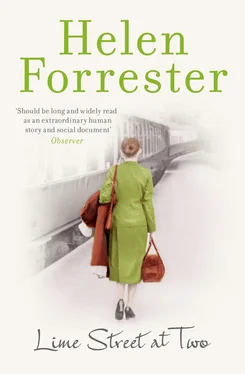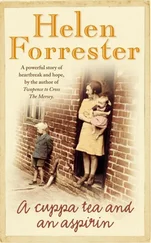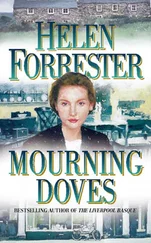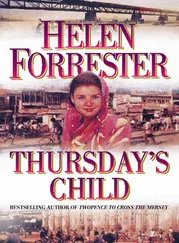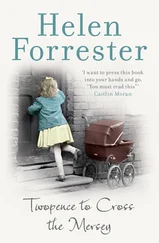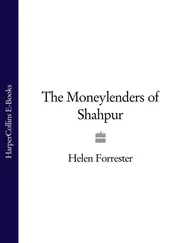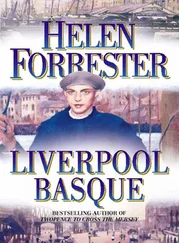Father asked me to write periodically to his friend, Tom, now training with the infantry. To please him, I did write for some considerable time, giving news of Liverpool and, since he was a teacher, sending press cuttings about the plight of teachers, which I thought might interest him. Perhaps Father hoped for a match between us, but I found him as dull as a January day. His replies were pedantic and grammatically perfect; I used to scribble Ten out of Ten on the bottom of them.
Father was very disconsolate at losing his drinking companion. He used to go alone to the concert halls and public houses they had previously frequented, but, since he was a sociable man, he probably found people to talk to.
He was on friendly terms with his colleagues at the office, but they had other interests. In their spare time, many of them were air-raid wardens, and some joined the Home Guard when it was set up. Most took the Government’s instruction to Dig for Victory very seriously and, according to Father, raised mammoth crops of vegetables on what had once been their lawns. We had only a brick-lined yard, so gardening was not possible, but, in any case, Father’s bad heart precluded his doing much heavy work.
There is no doubt that during those years he was often very lonely. Mother and he were never the good companions that older people can become. At best, they carped at each other continually.
Father was a clerk in the Liverpool Corporation. He was transferred by them to work in the administration of Rest Centres for the bombed out and of warehouses used to store the possessions of the dead or of the temporarily homeless.
When members of the Polish Army straggled into Liverpool, he was sent for a few days to help to take the history of the ragged, disillusioned men. Some who could not speak English could speak Russian, and the language he had learned under such painful circumstances in the Russian campaign in the First World War was suddenly put to use. He enjoyed the work, but he would come home to sit in his ancient easy chair, eyes closed, hands trembling with fatigue. Like all of us, he lacked sleep; and I think, also, that the company of soldiers in such adversity reminded him of his own anguish in the Great War.
The constant barrage of the guns during the raids also wore him down. I could see his face grow steadily more grim, as the nights progressed. He would sit very quietly on the cellar steps, while overhead the racket was continuous. Occasionally, however, he would bury his face in his hands, and once he muttered that it was exactly like being on a battlefield with a jammed machine gun, unable to return the fire.
There was little that I could do for him, except let him talk to me whenever he felt like it. He enjoyed telling his war stories over and over again. They were excellent vignettes of the lives of primitive Russian peasants, who had rescued him from certain death when he lay half frozen amid his dead comrades in the bloodied snow. He told me of sharp encounters with the enemy, in pathless forests, where his greatest fear always was that he would get lost. Many of his wounded friends died, when a shed made into an improvised hospital was set alight by the enemy during a raid. He still shuddered at the memory. ‘It was a hopeless inferno in seconds,’ he said. He spoke with praise of a Japanese unit which, at one point, served with him, of the utter savagery of the Russian revolution, of the people of Archangel dying of starvation and the smallpox. He was himself immune to smallpox, because his mother had caught it while she was pregnant with him; so he helped to nurse and to bury the victims of the disease. He had innumerable scarifying tales of the personal agony of war and revolution, so often forgotten amid cold statistics. He taught me that revolution rarely solves anything.
When the noise of the bombs was very bad, he would give a shaky laugh and say, ‘And we thought we had finished with war!’
‘It will be over in a few months,’ I would say to him. He would smile faintly – he knew better – from experience.
Once he said with great bitterness, ‘It will never be over – it will go on and on.’
How right he was. The war died down amid exhausted European populations, only to blaze up in Korea, Vietnam, India, Afghanistan, Iran, Iraq, Egypt and Israel, while embers smoulder and threaten Africa and strange outposts, like the Falklands.
In October, Sylvia celebrated her twenty-first birthday with a party, one of the first grown-up parties I attended.
Her plump, patient, little mother must have collected bits of rationed food over many months. Someone had contributed a bottle of blackcurrant wine of surprising strength; unaccustomed to alcohol, we all became quite merry.
On my twenty-first birthday, the previous June, Mother’s employer, a baker, hearing that I was approaching my majority, baked for me an exquisite little birthday cake. It was a rich fruit cake, which he had decorated himself with delicate flower wreaths of white royal icing. It was illegal to make such an extravagant cake, and he must have taken the ingredients from some illicit hoard stored away at the beginning of the war. He presented the cake to Mother as a gift.
The family had joined together to buy me a leather shopping bag, popularly known as a zipper bag. In these bags, carried by almost all business girls, were transported makeup, lunch, a change of shoes and stockings for wet days, a novel to read on the bus or train, and innumerable oddments like safety pins and aspirins. I was delighted by the gift; they must have hunted through most of Liverpool’s many shops to find such an article.
I arrived home from work, that evening, about eight o’clock. The family had given up hope of my arrival, assuming that I was working late and was having a snack in the office. They ate the sandwiches and scones which Mother had kindly provided to celebrate the day. The cake, however, was kept untouched.
I remember being moved almost to tears at the effort that had been made to find me a gift and a cake. I immediately cut the cake and passed it round the family. It was strange to eat cake for my birthday – but no dinner!
Small financial problems which, looking back, seem laughable, presented me with dreadful headaches.
In the early part of the autumn I forgot to switch off the cloakroom light before leaving the office.
The room had no blackout curtaining, and the light blazed forth across the old, walled garden at the back of the building. Our outraged warden reported it, and the Society was fined seven shillings by the local magistrate. This amount was deducted from my wages at the rate of one shilling a week, and for nearly two months my already penurious state was reduced to near disaster; I remember being torn between a decision to walk to work and thus wear out my precious stockings, which would have to be replaced, or nurse my current pair of stockings along, by hooking up the ladders with a fine crochet hook and darning and redarning, so that I could ride on the tram to work. It was a very long seven weeks.
It always astonished me that Mother never got fined for similar offences. The warden frequently remonstrated with her about the lack of curtaining over our back bedroom windows and the consequent glow of candlelight through them, a glow which in his opinion would guide the Luftwaffe straight to us. Perhaps because he was a neighbour he was loath to report her. Towards the end of the war, she did buy some second-hand curtains and put them up, but I suspect that she rather enjoyed baiting the unfortunate warden.
It was on a foggy day in late November that, after a heavy raid, I was very tired and decided to travel the whole distance to work by tram. On the first tram I took, to the city centre, the clippie told me that the whole system had been disorganised by the air raid, and that I might get a tram to Bootle more easily from the Pier Head.
Читать дальше
